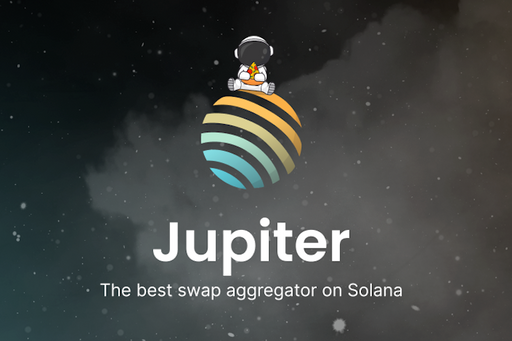
Jupiter Records $4 Billion Trading Volume Following FTX Collapse
In the months following the dramatic FTX collapse, Jupiter, the leading decentralized exchange (DEX) aggregator on the Solana blockchain, has made notable strides by crossing $4 billion in total trading volume.
- Published:
- Edited:
In the months following the dramatic FTX collapse, Jupiter, the leading decentralized exchange (DEX) aggregator on the Solana blockchain, has made notable strides by crossing $4 billion in total trading volume. This achievement signifies an upward trend of user activity on the Solana network, as the ecosystem disentangles its past affiliation with the once-mighty FTX empire.
Jupiter: The Key DEX Aggregator on Solana
As Solana's prime DEX aggregator, Jupiter has won the favor of many users by offering an avenue to trade various SOL-based tokens seamlessly, using liquidity pools from multiple decentralized exchanges. With Jupiter's functionality, traders have the privilege of securing the best possible prices, all the while benefiting from the network's competitive low fees and almost instant transaction confirmations.
The milestone $4 billion trading volume, as confirmed by Jupiter's data station, takes into account the aggregator's cumulative trading volume in the last six months (December 2022 to May 2023), following the infamous FTX collapse. Interestingly, the month of January witnessed the highest trading volume with more than $1 billion being traded on the aggregator as the crypto markets began their recovery from the yearly lows.
Trading Volume Recovery after FTX Debacle
Despite the optimistic outlook, it's important to note that the trading volume on the Solana-based DEX aggregator has yet to hit the peak of $4.8 billion recorded in a single month in mid-2022. However, the trading activity has gradually found its footing, returning to levels comparable to those experienced before the FTX debacle, which coincided with the onset of a prolonged bear market in the crypto sphere.
On-Chain Data Reveals Encouraging Signs
Additional on-chain data reveals that over 138,000 unique wallets have interacted with the Jupiter protocol in the past month alone. A clear preference for SOL-based liquidity pools, including SOL/USDC and SOL/USDT, has emerged, with these pairings recording a combined trading volume of $133 million in May.
Moreover, the primary Solana DEXes utilized for routing Jupiter orders over the past month include notable names like Orca, Raydium, and Lifinity. This activity points to a level of integration and cooperation within the Solana ecosystem that is helping it regain its momentum.
Conclusion
As Jupiter crosses this new milestone, it stands as a testament to the resilience of the Solana ecosystem in the aftermath of the FTX collapse. Jupiter's success is an encouraging signal for the growing decentralized finance (DeFi) scene on Solana, highlighting the potential for DEX aggregators to continue shaping the future of crypto trading.


